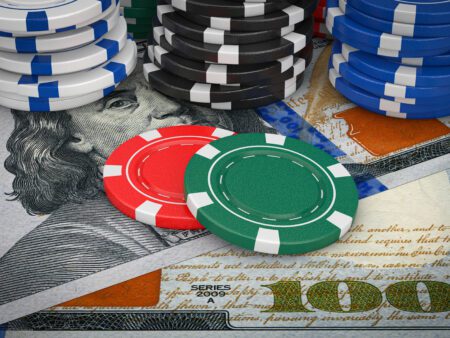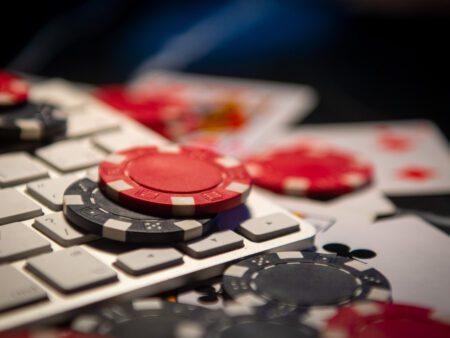Delve deeper into the psychology of poker with insights into tactics such as bluffing, reading ‘tells’ and predicting opponent behavior. Get equipped to win the mind games of poker.
The Mind Games of Poker: Strategies Beyond the Cards
Have you ever wondered why poker is often considered as much a game of psychology as it is a game of cards? The answer lies in the multifaceted nature of this age-old game, where bluffing and predicting your opponents’ moves can be just as crucial as having a good hand. This article will delve deeper into the psychological aspects of poker, offering insights and effective strategies to up your game. Let’s shuffle up and deal!
The Psychology of Poker
Poker is not just about strategizing based on the cards you hold, but it’s also about understanding your opponents. Players use psychological tactics to influence, deceive, and predict their opponents’ actions. Recognizing the signs of bluffing, reading ‘poker faces’ and understanding betting patterns can help you gain an edge in the mind games of poker.
Master the Art of Bluffing
The bluff is perhaps the most discussed poker strategy. The idea is simple: make your opponents believe you have a better (or worse) hand than you actually do. Effective bluffing can force your opponents to fold, even when they might hold a stronger hand. Remember that bluffs are more effective when they seem to fit the facts available to your opponents.
Poker Face: Hide Your Tells
A ‘tell’ in poker is any behavior or reaction that might give away information about your hand. It may be as subtle as a twitch, a sigh, or a momentary eye movement. One of the essential skills in poker is learning to control your emotions and maintain a ‘poker face’. Any change in demeanor, no matter how minute, can alert observant opponents about the strength of your cards.
Understanding your opponents is key in poker. This requires careful observation of their habits and patterns of play. It’s often the minute details that can give away a player’s strategy. For instance, how often do they bluff? How do they respond to a large bet? Understanding their strategy can allow you to counteract it effectively.
Informed Decision Making
In poker, every decision you make should be informed by the information available to you. This means being aware of your own hand’s strength, the possible hands based on the community cards, and the betting patterns of your opponents. Taking all these factors into account will allow you to make the right call at the right time.
The Probability Factor
Even though psychology plays a significant role in poker, you can’t ignore the underlying probabilities. Understanding the likelihood of certain outcomes can help guide your betting decisions. Solid math skills can help you calculate odds on the fly and determine the potential value of a bet. For example, knowing the probability of drawing a winning hand can help you decide whether or not to stay in the game.
However, remember that these probabilities shift with every card revealed. It’s crucial to adapt your strategy as the game progresses.
Poker and Other Casino Games
Unlike many casino games that heavily rely on luck, poker gives players the opportunity to influence the outcome by understanding opponents and making strategic decisions. However, this doesn’t mean it’s the only game where strategy matters. For example, game selection in blackjack can significantly influence your chances of winning. Understanding and exploiting the rules and strategies can give you an edge in casino games.
To Conclude
Poker is as much a game of mind as it is a game of cards. Excelling in poker requires a perfect blend of psychological understanding, strategic decision-making, and knowledge of probabilities. Mastery of these elements and a good understanding of game dynamics can enhance your winning chances not only in poker but in other casino games as well.
Ready to take the seat at the poker table? Have you tried any of these strategies before, and if so, how have they worked for you? Share your experience in the comments section below, and let’s engage in a lively discussion!










